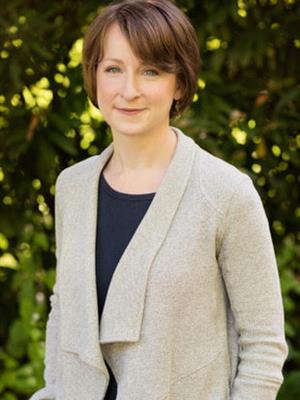
Rebecca Davis
Miller Family Early Career Professor of History
Professor
University of Delaware
207 John Munroe Hall
Newark, DE 19716
Biography
Rebecca L. Davis specializes in the
histories of gender, sexuality, and religion in the United States. She
received her B.A. in 1998 and her Ph.D. in 2006, both from Yale
University. Before joining UD’s history department in the
fall of 2007, she held a postdoctoral fellowship at Princeton’s Center
for the Study for Religion. In her academic research and teaching,
Professor Davis is especially interested in the moments when private
thoughts, behaviors, and beliefs become part of a
public conversation, whether those ideas concern ideals of marriage,
sex, faith, identity, or politics. She is the author of More Perfect Unions: The American Search for Marital Bliss (Harvard University Press, 2010) and of Public Confessions: The
Religious Conversions that Changed American Politics (University of North Carolina Press, 2021). In addition, with Dr. Michele Mitchell, she is co-editor of Heterosexual Histories (New
York University Press, 2021). Her current book project is a single-volume history of sex in America, with Liveright Press.
Prof. Davis is a 2011-2012 recipient of the LGBT Religious History Award from the LGBT
Religious Archives Network, for her essay, “’My Homosexuality Is
Getting Worse Every Day‘: Norman Vincent Peale, Psychiatry, and the
Liberal Protestant Response to Same-Sex Desires in Mid-Twentieth-Century
America.” She is a producer of the Sexing History
podcast, a research associate of the Council on Contemporary Families,
and a member of the Scholarly Advisory Board of the Gilder Lehrman
Institute of American History.
"This Is Probably a Really Weird Questions" is a new podcast co-created by Davis and Ronni Hayon, a family physician. Davis and Hayon met at sleep-away summer camp when they were 16 years old, and they have been having conversations about sex and justice ever since. This podcase shares the insights they gain from one another's respective areas of expertise with a wide public. www.reallyweirdquestion.com.
Publications
Books:
Heterosexual Histories, co-edited with Michele Mitchell, (New York University Press, 2021)
Public Confessions: The Religous Conversions That Changed American Politics (The University of North Carolina Press, 2021)
More Perfect Unions: The American Search for Marital Bliss (Harvard University Press, 2010)
Articles and Book Chapters
“‘These Are a Swinging Bunch of People’: Sammy Davis, Jr., Religious Conversion, and the Color of Jewish Ethnicity.” American Jewish History 100, no. 1 (2016): 25–50.
“‘My Homosexuality is Getting Worse Every Day’: Norman Vincent Peale, Psychiatry, and the Liberal Protestant Response to Same-Sex Desires in Mid-Twentieth Century America.” In American Christianities: A History of Dominance and Diversity, edited by Catherine Brekus and W. Clark Gilpin, 347-365. Chapel Hill: University of North Carolina Press, 2011.
“‘Not Marriage at All, but Simple Harlotry’: The Companionate Marriage Controversy,” Journal of American History 94, no. 4 (March 2008): 1137-1163.
This Page Last Modified On:
<a target="_blank" href="/Lists/Bios/AllItems.aspx" class="ms-promotedActionButton"> <span style="font-size:16px;margin-right:5px;position:relative;top:2px;" class="fa fa-pencil-square-o"> </span> <span class="ms-promotedActionButton-text">EDIT LIST </span> </a> <a target="_blank" href="/BookShelf/Forms/AllItems.aspx" class="ms-promotedActionButton"> <span style="font-size:16px;margin-right:5px;position:relative;top:2px;" class="fa fa-pencil-square-o"> </span> <span class="ms-promotedActionButton-text">EDIT BOOKS </span> </a> <a target="_blank" href="/cas-it/utility/ir-bio" class="ms-promotedActionButton"> <span style="font-size:16px;margin-right:5px;position:relative;top:2px;" class="fa fa-crop"> </span> <span class="ms-promotedActionButton-text">CROP IMAGES </span> </a> <a target="_blank" href="/Images%20Bios/Forms/Thumbnails.aspx" class="ms-promotedActionButton"> <span style="font-size:16px;margin-right:5px;position:relative;top:2px;" class="fa fa-camera"> </span> <span class="ms-promotedActionButton-text">UPLOAD IMAGES </span> </a> <a target="_blank" href="/Documents Bios CVs/Forms/AllItems.aspx" class="ms-promotedActionButton"> <span style="font-size:16px;margin-right:5px;position:relative;top:2px;" class="fa fa-file-text"> </span> <span class="ms-promotedActionButton-text">UPLOAD CV'S </span> </a>
WebPartEditorsOnly hideHeader CSWPGoogleFix